Lisa Henry
"Oral health is the gateway to the rest of the body. It allows us to eat, speak, smile, feel confident – and that’s true with kids too."
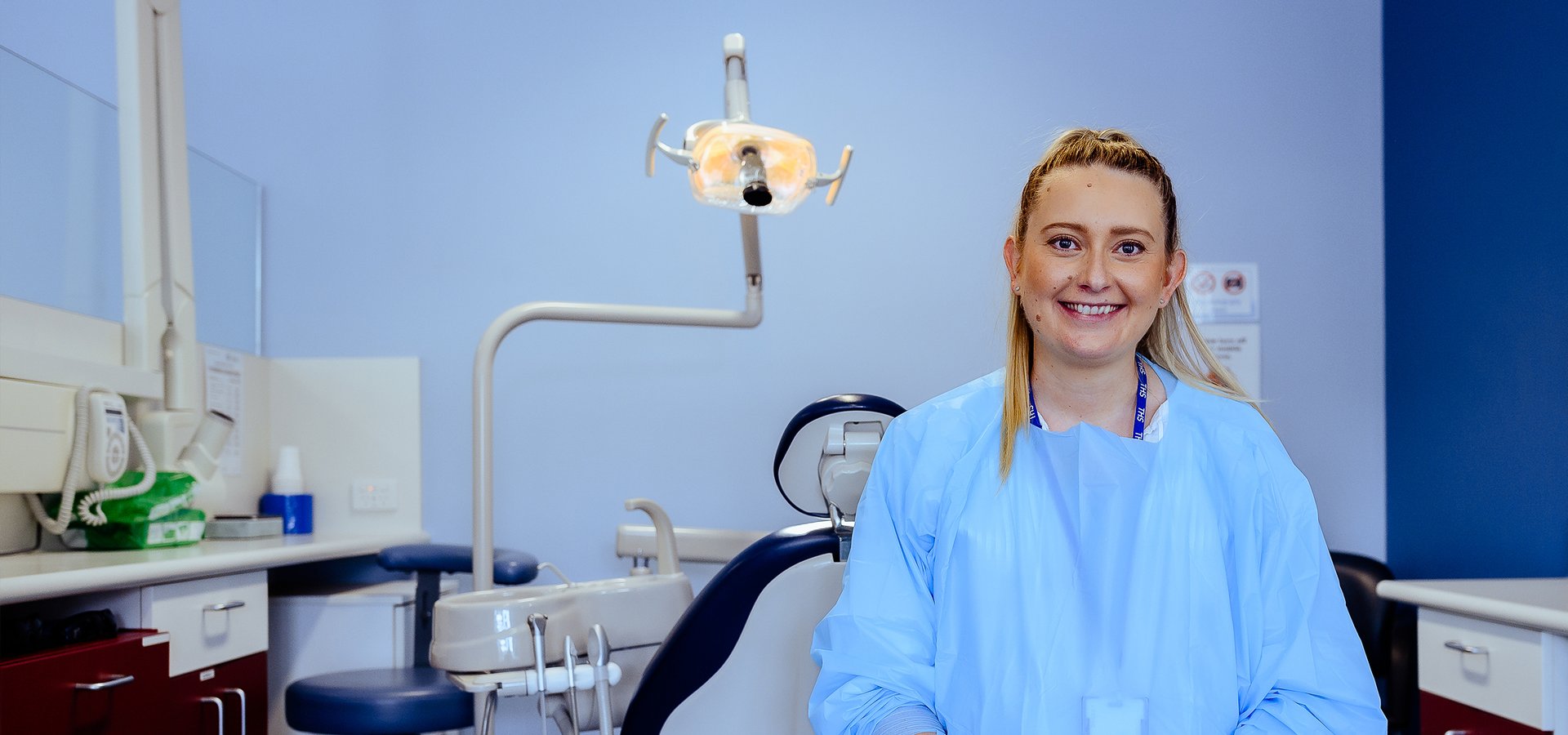
"You hear a lot of stories from parents about how horrible their experience was going to the dentist. So it’s nice to make a good experience right from the start, and have them enjoy and be excited to come in."
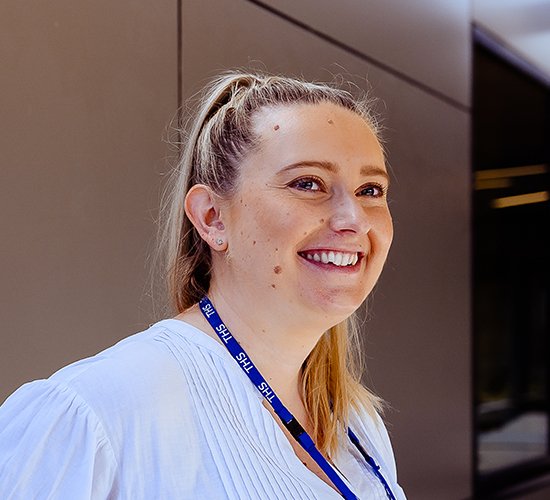
Every time we go to the dentist, we are receiving the care of someone who has chosen Tasmania.
All oral health professionals in Tasmania have made the choice to work here. There is no dental school in the state, so practitioners need to study on mainland Australia, then move or return. Once they’re practicing, they still need to leave Tasmania to further their education and stay up to date in their field.
Lisa Henry is an oral health therapist. Usually working with children aged 0-18, oral health therapists focus on education and prevention. They do check-ups, x-rays, fillings, and simple tooth extractions – everything children need to avoid that big trip to the dentist. Most importantly, they invite children and families into positive and fun experiences of oral health right from the first tooth.
“You hear a lot of stories from parents about how horrible their experience was going to the dentist,” Lisa says. “So it’s nice to make a good experience right from the start and have them enjoy and be excited to come in. The patients are great. Generally, it’s a really fun job.”
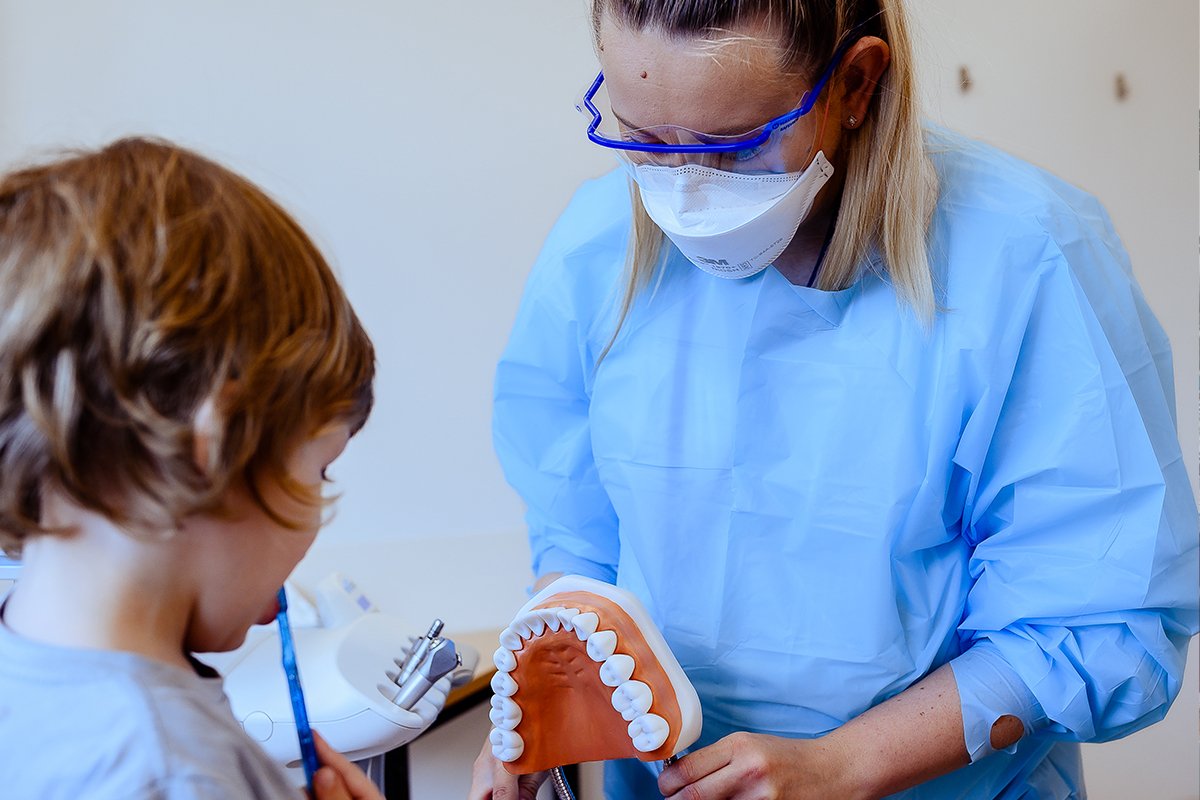
Lisa’s journey began far away in the Northern Territory, in Nhulunbuy. A small town of 4,000 people in North-East Arnhem, it was a full day’s drive to Darwin. She loved living there, in a relaxed and safe community, where “you would just go off and do what you wanted to do, and everyone knew each other and would be on the lookout.”
Her family moved to Hobart when she was in Grade 10. Lisa remembers it feeling like a big and busy place by comparison. But her father was Tasmanian, and she was surrounded by family. To her, it felt welcoming and friendly, without the rushed feeling of bigger cities.
Lisa can trace her interest in oral health to a single moment in Grade 11, when a group of inspiring, newly graduated dentists came to her school to speak. She decided to pursue a dental career there and then, choosing a Bachelor of Oral Health. There was one problem: she couldn’t study in Tasmania.
Lisa went to the University of Adelaide to pursue her degree, nearly accepting a graduate placement in Canberra. But her strong connections to family in Tasmania drew her back. Then, a clinic walkthrough and conversation with a senior clinician persuaded her to build her career here.
Now, after 13 years as an oral health therapist, Lisa is still as passionate and committed as a newcomer to the field. “Oral health is the gateway to the rest of the body,” she says. “It allows us to eat, speak, smile, feel confident – and that’s true with kids too. It’s not just about being able to function. It affects a whole heap of general health conditions later down the track in adulthood. We have a program – Healthy Smiles for Two – focusing on pregnancy. There is a relationship between poor oral health and poor pregnancy outcomes, like low birth weight. And babies aren’t born with any decay-causing bacteria in their mouths; it’s generally transferred from the primary caregiver. That’s why we encourage good oral hygiene from the very beginning.”
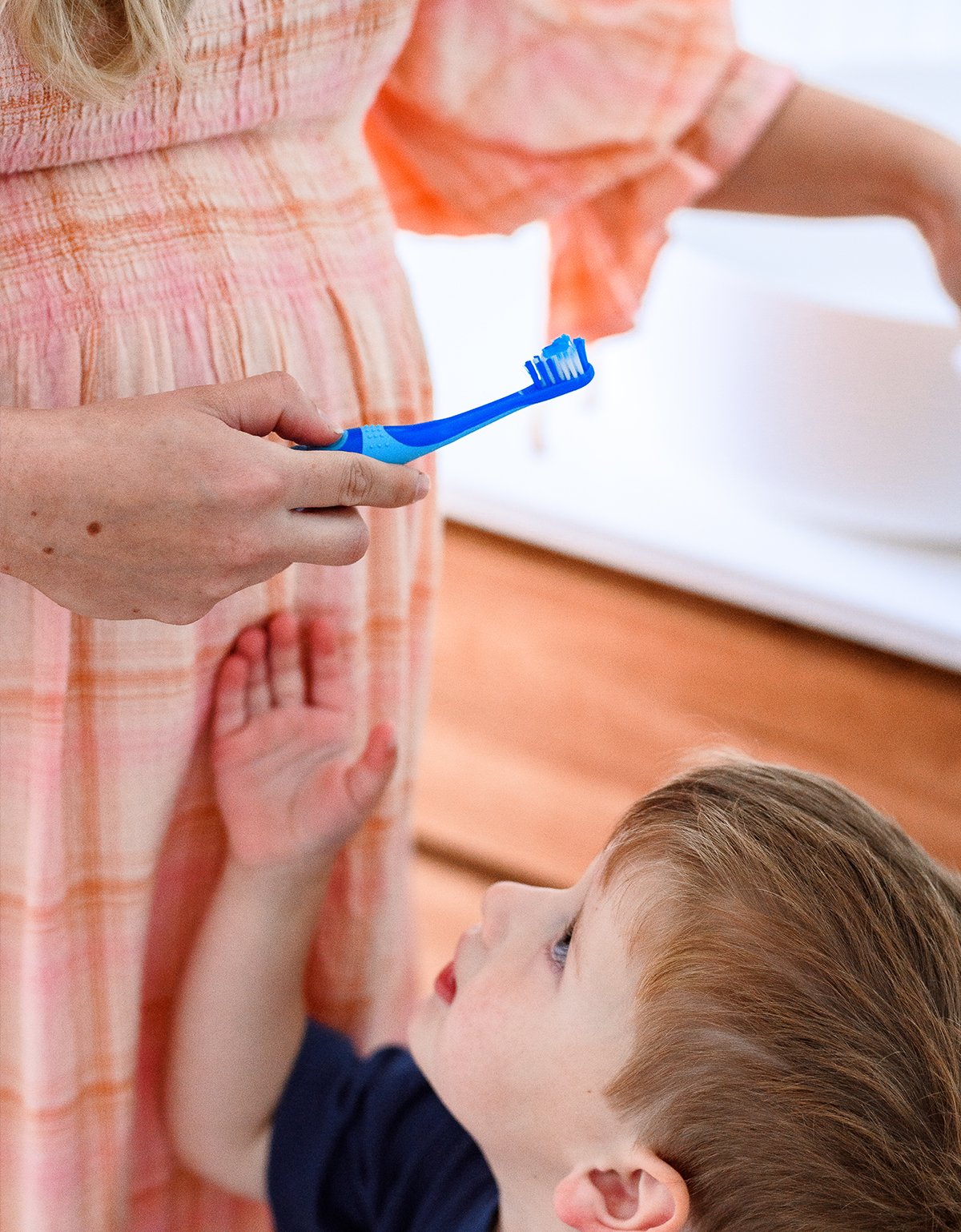
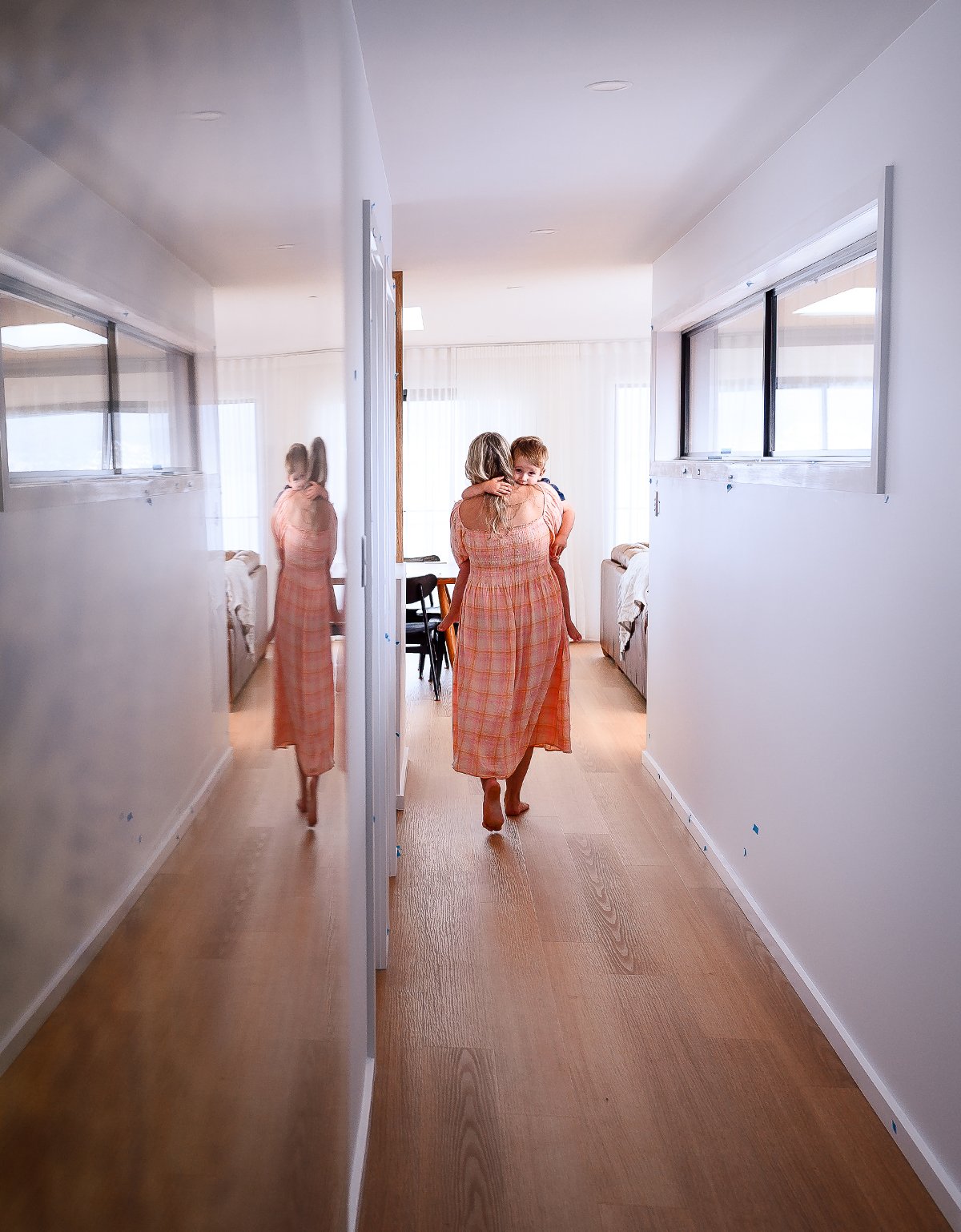
Lisa is the mother of a bouncy, energetic 3-year-old and a newborn. She loves raising her children in Tasmania, where there is space for them to run around and the chance for them to bond with family living close by. Her first child was born just six weeks before COVID lockdown, but the online new parents’ group organised by the Child Health and Parenting Service helped make a challenging time less isolating. Once restrictions lifted, she found visits to local parks welcoming and reassuring. “You will be sitting there with your child and no one else, and people will come up to have a chat with you,” she explains. “They’re just happy to strike up a conversation, which is something you start to miss when you’re in the trenches at home.”
She found having a family has helped her connect with common issues patients face in their daily lives.
“I remember one time I was just sitting there, and I could hear my son coughing in the next room, and I was like, ‘No! Not today! I just want to get out of the house, I just want to go for a coffee.’ And I knew I couldn’t. You just want to catch up with people and leave the house; sometimes it feels like it’s never-ending. Parenting is hard, and you need support - just being able to talk and explain what you’re going through with someone who you can vent to, who isn’t necessarily going to give you a solution. We know we’ll get through it, and it’s only a phase, but when you’re in the thick of it, it’s hard work. As much as you can, you just need to go with the flow.”
Staying on top of oral health can be a big challenge for busy families, but Lisa’s most important piece of advice is that prevention is key. Oral Health Services Tasmania’s Child and Adolescent Service bulk bills Medicare and has no waiting lists, and it’s never too late to get children on a path to good oral health. Sometimes, all families need to hear is that everything will be ok, without judgement.
“One bad incident or one hole in a tooth doesn’t mean that’s who you are,” Lisa explains. “There are bigger things and people have bigger problems going on in their lives. We don’t judge people on how this came to happen, because you don’t know what’s going in someone’s life. We want parents to know that, even if nothing happens during a visit, it’s never a waste of time. We try to make it fun, working on confidence and getting them comfortable in the dental setting. We can turn things around and support people to change when they’re ready, when they’re happy to, for better oral health.”
Lisa says having children has helped her relate to her patients and understand some of the challenges they might be having at home, trying to get kids to brush their teeth or eat the right things. “If you’re not perfect every single day, that’s absolutely fine,” she assures. “You can get in the best brush you can for that day, and there’s always tomorrow.”
We worked with southern Tasmanian photographer Moss Halliday-Hall for this Tasmanian story.